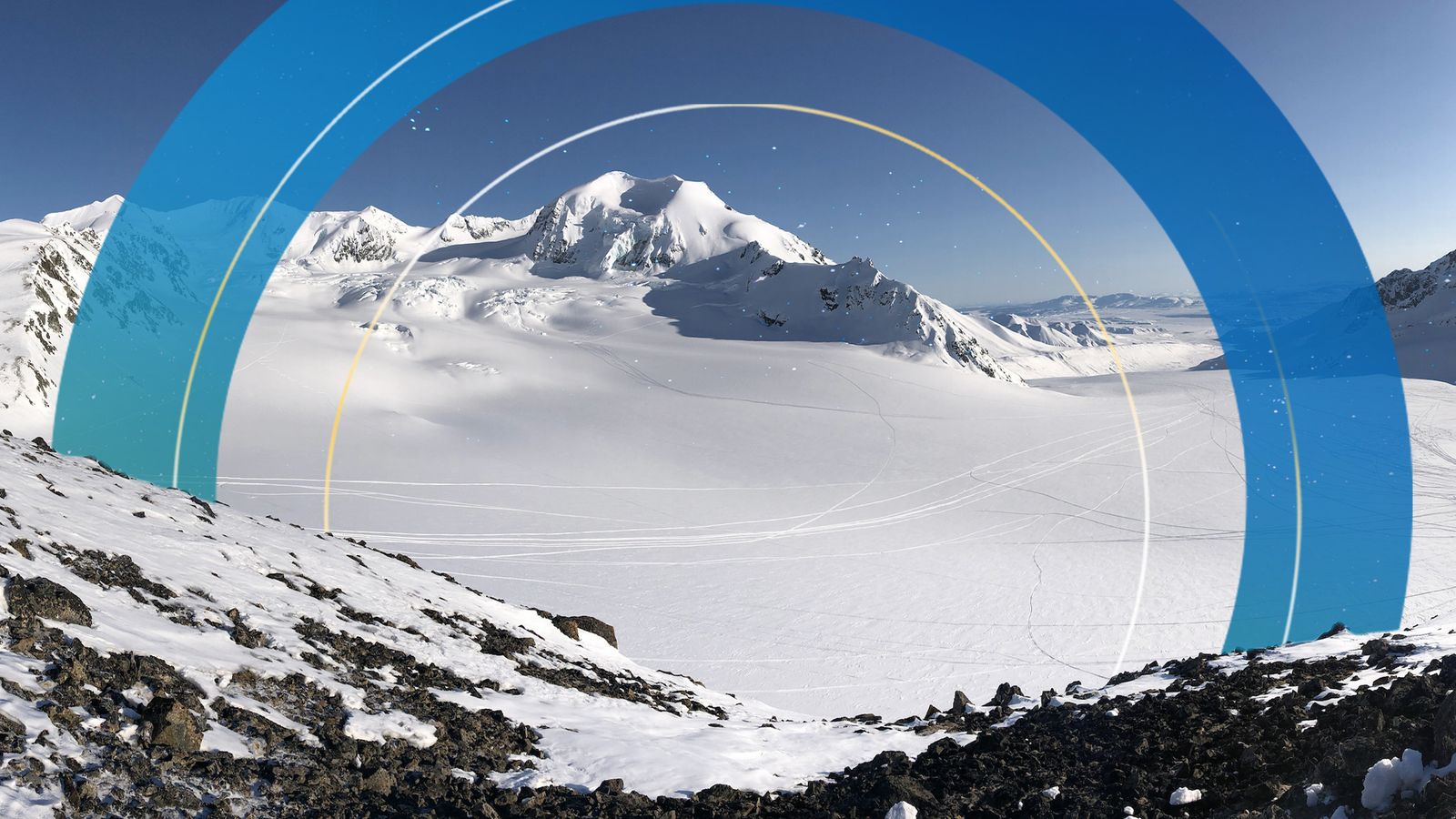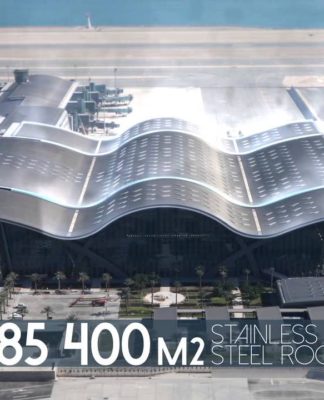Earth risks losing 40% of glacial mass if it doesn’t give up fossil fuels, projection warns
The world is already experiencing catastrophic glacier loss, which contributed to the disastrous flooding seen last summer in Pakistan. Even if global emissions targets are met, much of the planet’s glacial mass would still vanish.
Thursday 5 January 2023 19:02, UK
Pic: Pittsburgh College of Engineering
Image:
Pic: Pittsburgh College of Engineering
Why you can trust Sky News
More than 40% of Earth’s glacial mass could disappear if humanity keeps investing in fossil fuels, warns a stark new projection.
The bleak scenario would mean more than two thirds of the total number of glaciers would vanish by the end of the century, contributing to ever-increasing sea levels around the world.
Sponsored link
Recommended byWhat is Outbrain
Lead researcher David Rounce, who is the assistant professor of civil and environmental engineering at Pittsburgh’s College of Engineering, led an international effort to produce the new projection.
Even in that best-case scenario, Professor Rounce’s team found that almost 50% of glaciers would disappear, accounting for more than 25% of total glacial mass, by 2100.
A previous study warned that the Earth is already destined for 1.5C of warming.
While most of the glaciers lost under Professor Rounce’s projections are small by global standards, measuring less than one kilometre squared, the disappearance of so many of them would add up.
Catastrophic glacier loss is already being felt across the globe.
MORE ON CLIMATE CHANGE
French gendarmes stand in front of the Hotel Matignon after environmental activists of “Derniere Renovation” (Last Renovation) group sprayed paint on the facade to draw attention to climate change and to denounce the French State failure to not honor its climate commitments, in Paris, France, January 4, 2023. REUTERS/Gonzalo Fuentes
French climate activists spray-paint front of prime minister’s office
Satellite images show Morzine in the French Alps on 30 December 2021 compared with 25 December 2022. Pic: Sentinel
Satellite images show dramatic lack of snow in ski resorts as heat in Europe ‘annihilates’ records
A PhD student in Allan Hills, East Antarctica, sent his camera 93 meters into the ground on December 23, while collecting ice researchers estimate to be over two million years old.
Camera plunges down Antarctica borehole to reveal Earth’s ‘oldest ice’
Related Topics:
Climate Change
Climate Crisis
Last year, Switzerland’s glaciers were found to have shrunk by half in less than a century – and the country’s oldest glacier has had to be covered by special white blankets to prevent it from melting.
The thawing has been so intense that a Sky News team was able to witness an aircraft wreck dating back to 1968, which re-emerged without warning in the Swiss Alps when the ice hiding it started to melt.
Melting glaciers reveal plane wreckage3:52
Play Video – Melting Swiss glaciers reveal old plane wreckage
Melting Swiss glaciers reveal old plane wreckage
Melting glaciers also contributed to last summer’s catastrophic flooding in Pakistan, which is home to more glaciers than anywhere outside the Arctic and Antarctic.
Located in the northern Himalayas, Pakistan has some 7,000 glaciers, and rising temperatures – which reached almost 50C (122F) in the city of Nawabshah in 2022 – are causing them to melt and form glacial lakes.
Scientists have also issued warnings about the melting of Antarctica’s so-called “doomsday glacier”, the complete collapse of which could raise sea levels by 60cm.
The impact would be so far-reaching that it would even have “severe consequences” for the UK.
But Professor Rounce warned that even a complete halt of global emissions would not be reflected in the rate that glaciers are disappearing for decades – potentially taking up to 100 years.
He describes glaciers as “extremely slow-moving rivers”, the impact of which takes time to be felt.
A search helicopter is seen above the Marmolada glacier in the Italian Alps10:41
Play Video – Major glaciers to disappear by 2050
Major glaciers to disappear by 2050
Watch the Daily Climate Show at 3.30pm Monday to Friday, and The Climate Show with Tom Heap on Saturday and Sunday at 3.30pm and 7.30pm.
All on Sky News, on the Sky News website and app, on YouTube and Twitter.
The show investigates how global warming is changing our landscape and highlights solutions to the crisis.






























